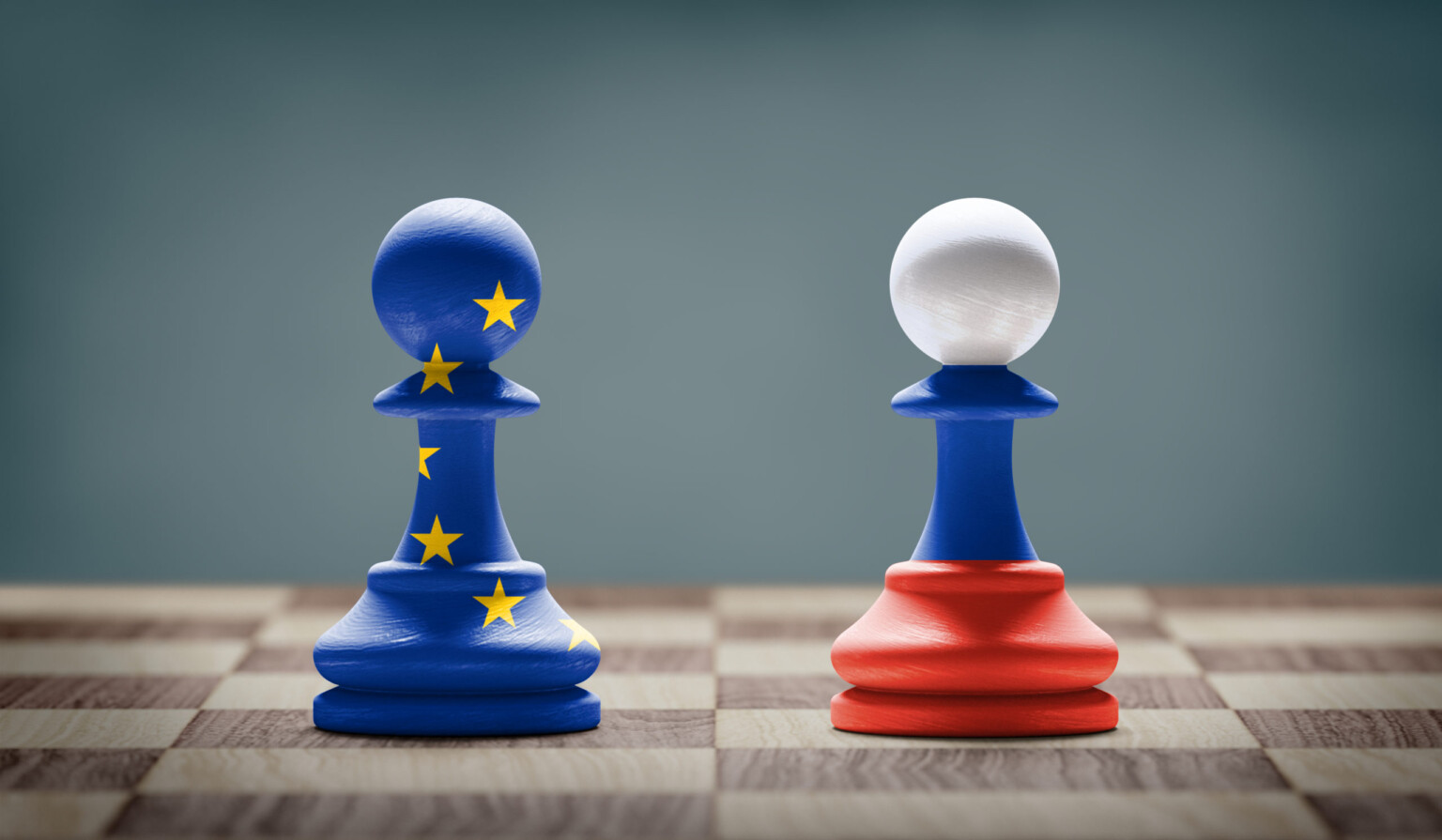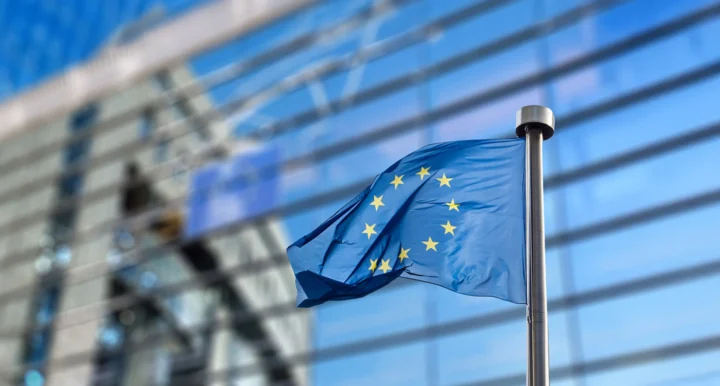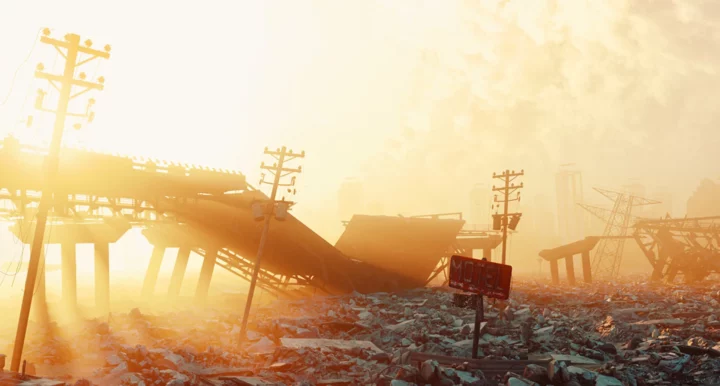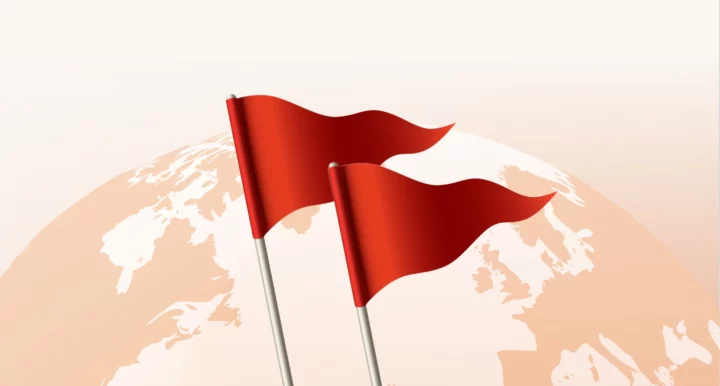Russia’s invasion of Ukraine on 24th February 2022 prompted a swift and severe response from the international community and triggered a range of economic sanctions unprecedented in their scope and severity. In coordination with the UK, the US and Canada, the EU joined Western economic powers in imposing sanctions against Russia designed to punish President Vladimir Putin’s regime, and degrade Russia’s ability to bring military power to bear against its neighbour.
The EU’s sanctions on Russia are intended to “cripple the Kremlin’s ability to finance the war, impose clear economic and political costs on Russia’s political elite, and diminish its economic base”. In addition to Russia’s economy, the EU is also targeting Russia’s transport, trade, and energy sectors in what foreign policy chief, Josep Borrell, has called “the harshest package of sanctions we have ever implemented.”
The EU issued the first round of sanctions following Russia’s initial incursion into Ukraine, but has since implemented a second round of sanctions that target the Russian economy more broadly, along with specific measures against a list of politicians and military commanders.
What are the EU’s Russia Sanctions?
Existing Sanctions
The EU imposed sanctions on Russia in 2014, following the annexation of Crimea. Sanctions were also implemented in response to the Russian government’s ongoing interference in Western democratic elections and its oppression of political dissidents and journalists – such as the poisoning and imprisonment of Alexei Navalny. The EU’s sanction regime targets individuals and entities and includes asset freezes, trade prohibitions, import and export bans, and travel bans.
The first round of 2022 sanctions: 23rd February 2022
The first round of the EU’s 2022 sanctions against Russia were announced on 23rd of February, in response to Russia’s recognition of the ‘independence’ of the Donetsk and Luhansk regions of Ukraine and subsequent troop incursions into those areas before the large-scale invasion began on 24th February. Josep Borrel characterised Russia’s recognition of Donetsk and Luhansk as an “illegal and unacceptable” violation of international law.
The sanctions entailed the following measures and restrictions:
- Asset freezes and travel bans against the 351 members of the Russian State Duma (the lower house of Russia’s parliament) who voted to recognise the ‘independence’ of Donetsk and Luhansk.
- Asset freezes and travel bans against 27 Russian individuals and entities deemed to have ‘contributed to the undermining or threatening of the territorial integrity, sovereignty, and independence of Ukraine’. The targets of the sanctions include:
- PSB Bank
- VEB Bank
- Bank Rossiya
- Internet Research Agency
- Sergei Shoigu, Russia’s Defence Minister
- Igor Shuvalov, Head of VEB Bank
- Maria Zaharova, Russian Foreign Ministry spokeswoman
- Margarita Simonyan, head of the RT TV news channel
- Prohibitions on Russian banks and state-owned entities accessing the EU’s financial markets and raising funds in the EU financial system.
- Further targeted sanctions prohibiting business relationships with individuals and entities in the Donetsk and Luhansk regions.
The second round of 2022 sanctions: 25th February, 2022
Following the first round of sanctions, and in response to Russia’s ‘unprovoked and unjustified’ escalation to a full-scale invasion, EU member-states implemented a second round of sanctions on 25th February, including sanctions targeting President Putin and Russian Minister of Foreign Affairs, Sergey Lavrov.
The second round of sanctions targets the following areas of the Russian economy and social infrastructure with a range of measures:
Finance
- Expanded measures to further cut Russian access to European capital markets.
- Prohibitions on Russian state-owned entities using EU trading venues.
- Prohibitions on Russian nationals and residents depositing funds into EU financial institutions, and on Russian nationals holding accounts with EU financial institutions.
- Prohibitions on the sale of euro-denominated securities to Russians.
- A ban on transactions with the Russian Central Bank.
Energy
- Prohibitions on the ‘sale, supply, transfer or export’ of goods and technologies, and on the provision of services, relating to oil refining to Russia.
Transport
- A ban on the export of goods and technology for use in the Russian aviation and space industries.
- A ban on the provision of insurance and maintenance services relating to aviation and space technology to Russia.
Technology
- Restrictions on the export of dual-use goods and technology to Russia, and on the export of goods and technology that may be used to enhance Russia’s defence and security sectors.
Visa Policy
- Russian diplomats and officials will no longer be able to benefit from visas that enable privileged access to the EU. The measure does not affect ordinary Russian citizens.
The EU has also frozen the assets of President Putin and the Minister of Foreign Affairs, Sergey Lavrov.
The EU’s sanctions measures are expected to affect 70% of the Russian banking market – in particular companies involved in defence – and prevent Russian politicians and oligarchs from hiding their money in European safe havens. They are also expected to increase Russian borrowing costs and inflation, and degrade Russia’s industrial sector.
Switzerland’s Sanctions on Russia
Although it is not an EU member-state, and traditionally remains neutral in issues relating to global conflicts, Switzerland has joined the EU and the wider international community in levelling sanctions against Russia. Switzerland’s government has stated that the sanctions do not violate the country’s long-held neutrality principle because they have been implemented as a way to address Russia’s violation of international law.
Switzerland’s Russia sanctions were implemented under the ‘Ordinance on Measures in connection with the situation in the Ukraine’ on 25th February 2022, and include the following measures:
- Asset freezes on designated Russian individuals and entities.
- A ban on entering business relationships with designated Russian individuals and entities.
- Asset freezes against Russian President Vladimir Putin, Prime Minister Mikhail Mishustin, and Foreign Minister Sergey Lavrov.
- A ban on imports and exports to the Ukrainian regions of Donetsk and Luhansk.
- Closure of Swiss airspace to all flights from Russia.
How to Comply with the EU’s Russia Sanctions
With Russia’s invasion of Ukraine ongoing, the sanctions risk landscape is likely to remain fluid for the foreseeable future. The complexity of the EU’s Russia sanctions programme is exacerbated by the capability of Russian oligarchs to hide money around Europe, and conceal their footprints with corporate structures and shell companies.
With that in mind, it is essential to have a balanced approach to sanctions and watchlist management that offers a holistic perspective on your company’s risks. Our risk management solution includes next generation name-matching software in order to maximise true matches and minimise false positives – even when matching Cyrillic, Asian and other character sets with Western or Latin names and vice versa.
One of the best ways to stay ahead of evolving sanctions compliance obligations, is to implement effective adverse media screening. Ripjar’s Adverse Media screening solution adds another dimension to your risk management capabilities, deploying continuous monitoring and identification measures in order to detect high risk customer names as soon as they are featured in news stories. Integrating machine learning data classification, our data processing hub can read articles in 21 languages, across a wide range of sources, and is designed to identify pertinent risk so that analysts can decide if further action must be taken.
Contact Us to learn more about risk screening
Last updated: 16 August 2024





